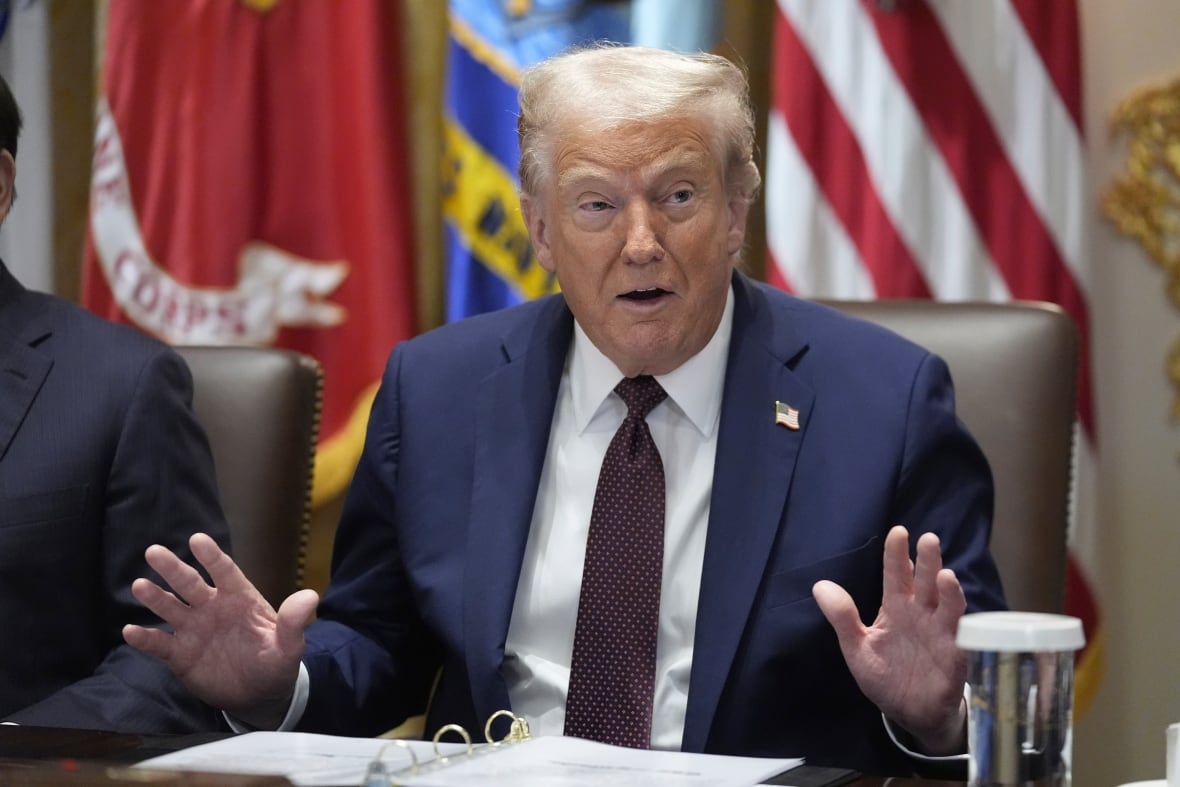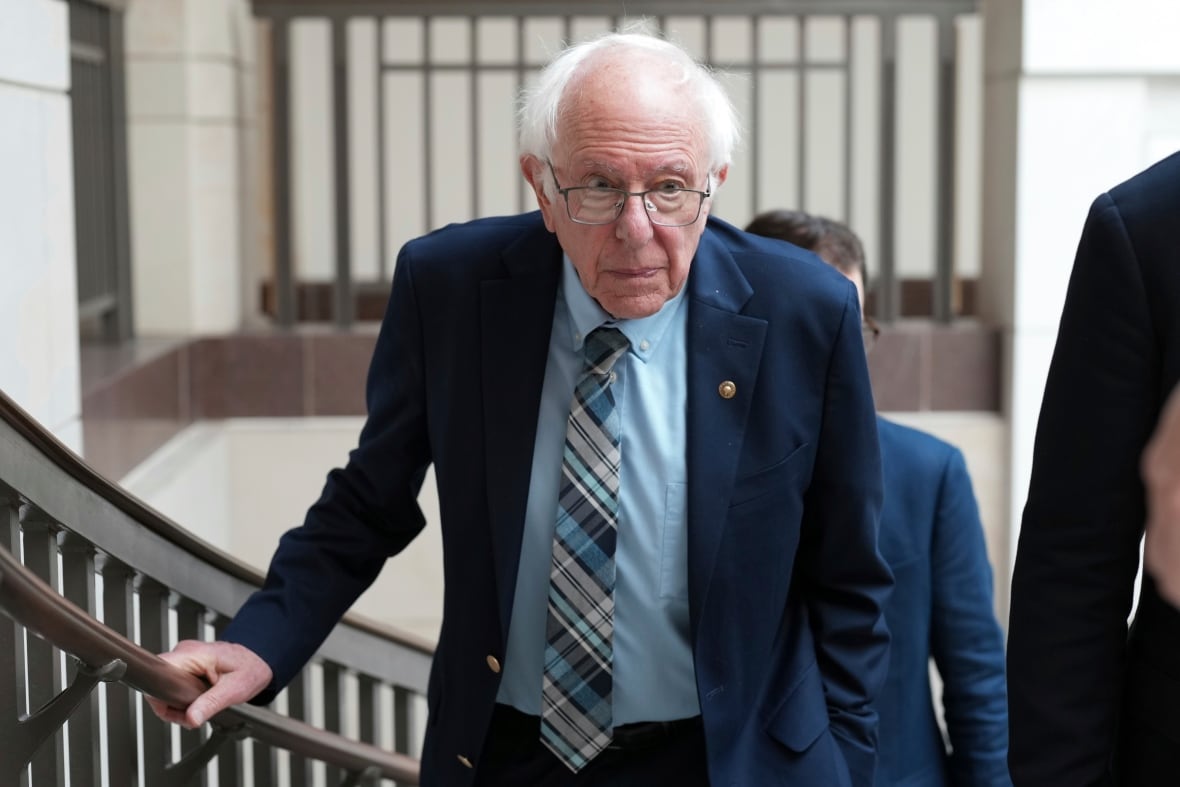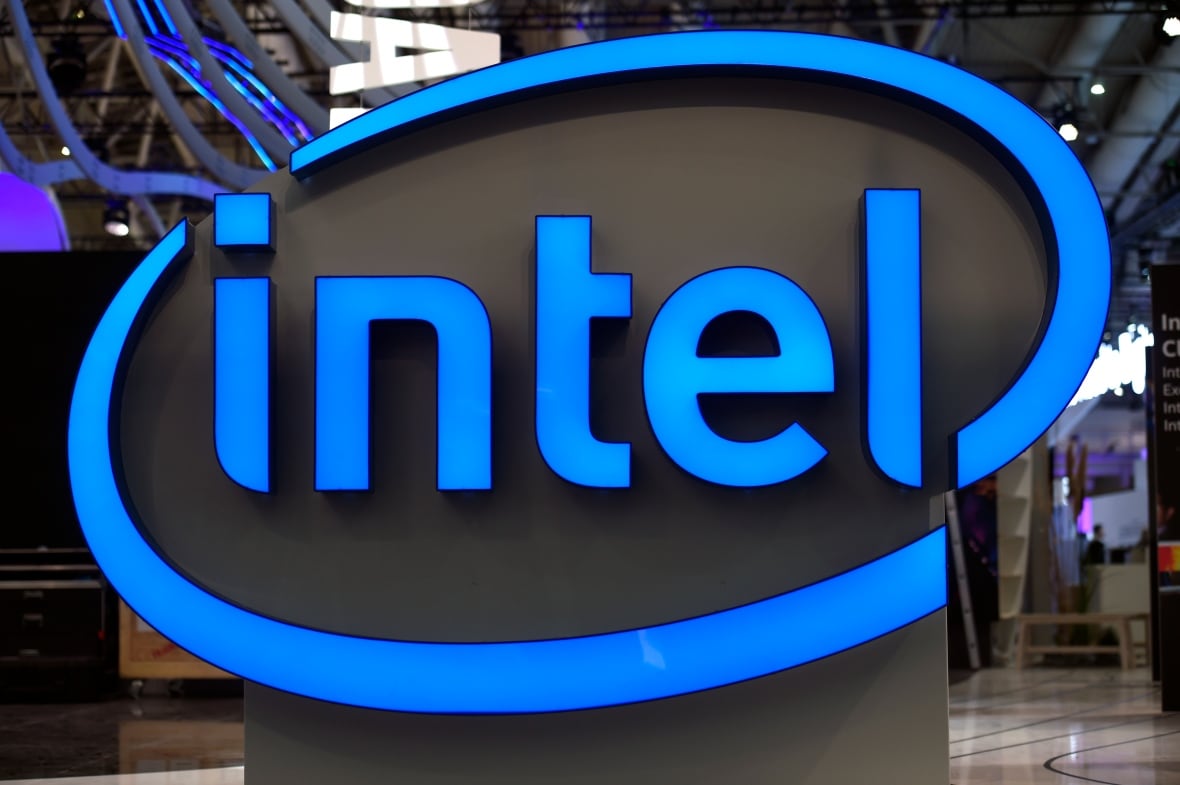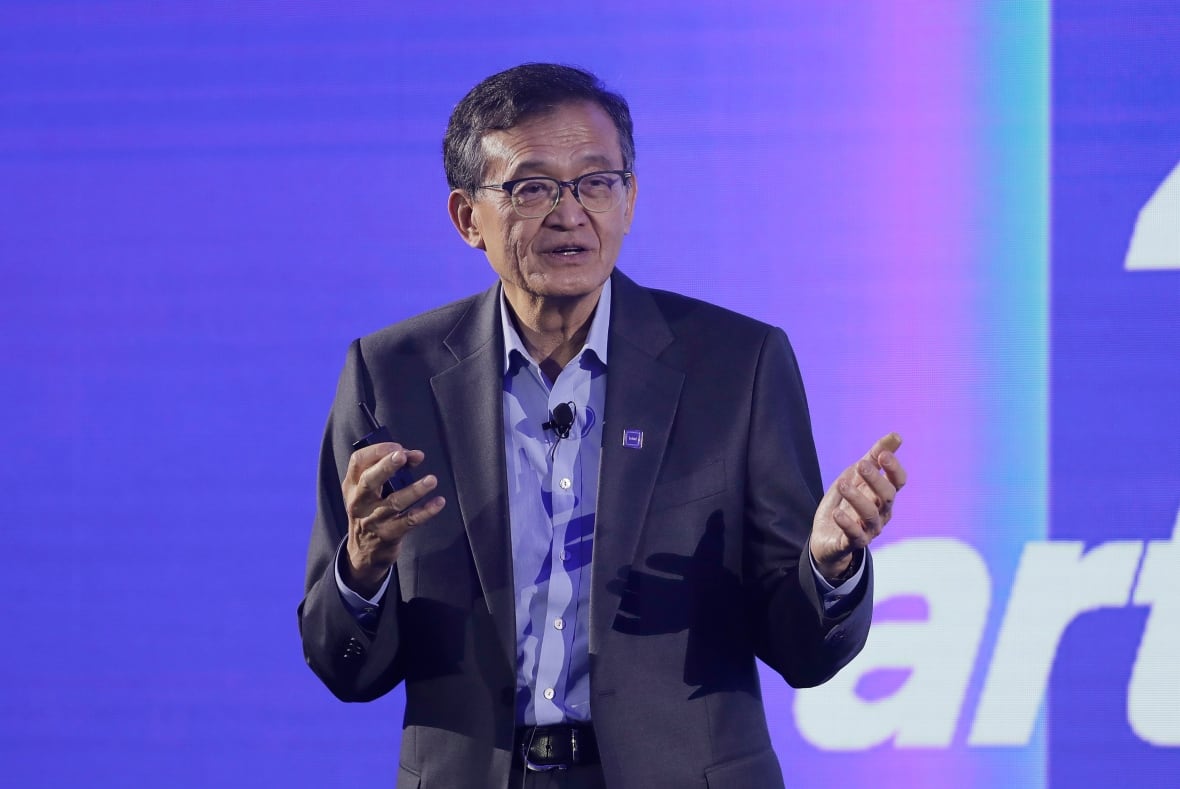The U.S. government has taken a stake in Intel. Defence industry contractors could be next

On the heels of a controversial decision by the American government to take an ownership stake in U.S. chip-maker Intel, Commerce Secretary Howard Lutnick suggested in an interview on Tuesday that Donald Trump's administration could be looking at Pentagon contractors as it casts for more public-private opportunities.
"There's a lot of talking that needs to be had about how do we finance our munitions acquisitions," Lutnick told CNBC.
"Lockheed Martin makes 97 per cent of their revenue from the U.S. government," he said of the defence industry giant. "They are basically an arm of the U.S. government."
Lutnick's comments echo those of Treasury Secretary Scott Bessent, who said on the same network on Monday that "at some point, there'll be more transactions."
A Bloomberg report on the Intel transaction on Friday said Trump was embracing "a new brand of economic statecraft." But an official in his first administration had a more caustic take.
"Washington is embracing what can only be called corporate socialism — profits privatized, losses socialized and taxpayers held hostage to the fortunes of politically connected firms," wrote Vance Gunn, an associate director for economic policy in the White House's Office of Management and Budget between 2019 and 2020, this week for the liberal think-tank American Institute for Economic Research (AIER).
The backgroundThis summer, the White House has announced a number of direct interventions across sectors. In June, it took what Trump called a "golden share" as part of the purchase of U.S. Steel by Japan's Nippon Steel. Trump had criticized the Nippon bid during the 2024 presidential campaign, but now the U.S. government could conceivably veto company decisions that it sees as antithetical to national security.
Meanwhile, the Defence Department secured a 15 per cent sake in MP Materials, a rare earth miner, and the Trump administration secured a deal to allow Nvidia and AMD to sell microchips to China by taking 15 per cent of sales revenue.
Then last week, the government said it was taking a 9.9 per cent stake in Intel, one of the most storied Silicon Valley companies, converting $11.1 billion US in previously issued funds.

The Intel move, in particular, has unleashed a torrent of reaction that has deviated from the neatly divided split between the parties so often seen in the U.S. The government is now a large shareholder in a company in the process of downsizing by more than 20,000 workers.
"I abhor this idea, I really do," said businessman Kevin O'Leary, who has generally been supportive of Trump administration policies, on CNBC on Monday. "What has made America so great for 200 years is the government stays in its lane."
"Intel should have been sold for car parts three years ago," he added.
Republicans like former vice-president Mike Pence and current North Carolina Sen. Thom Tillis have also criticized the Intel move. Tillis said it evokes a "semi-state-owned enterprise" as seen in communist China.
Kentucky Sen. Rand Paul, a Republican with an isolationist bent, asked on social media last week, "If socialism is government owning the means of production, wouldn't the government owning part of Intel be a step toward socialism?"
Bernie Sanders, the progressive independent from Vermont who caucuses with the Democrats, spoke out in favour of the move.

"If microchip companies make a profit from the generous grants they receive from the federal government, the taxpayers of America have a right to a reasonable return on that investment," he posted on social media.
U.S. not an outlier, Lutnick saysBoth the current White House and Joe Biden's administration have sought to lessen U.S. dependence on chips manufactured overseas, in a race for the lead in artificial intelligence.
In multiple media interviews this past week, Lutnick has sounded not unlike Sanders, taking pains to stress the government and taxpayers are now actually getting something back, as opposed to the Biden administration's direct funding of Intel under the CHIPS and Science Act.
"It was just a giveaway of money," Lutnick said Tuesday.
The U.S. is far from an outlier globally, he said.
"Most countries in this world subsidize their most important industries," he said, pointing to recent U.K. moves to take back what remains of British Steel.

Daniel McCarthy, editor-at-large of the American Conservative, said in an editorial this week that too many conservatives are clinging to outdated ideas about the economy. The government, he said, is using the Intel deal as part of a drive to create a sovereign wealth fund that, while not without risk, is forward-thinking.
"The president isn't looking to the past — this is about keeping the United States competitive with other nations in the 21st century, including Communist China, which controls the world's second- and third-largest sovereign wealth funds," McCarthy wrote.
'I want to try and get as much as I can'These moves give rise to charges of hypocrisy, though Trump doesn't seem to care.
On Monday, a reporter pointed out that he called 2024 presidential candidate Kamala Harris all manner of pejoratives — including a "communist" and a "Marxist" — but that neither she nor Biden called for nationalizing a private company.
Trump seemed to agree it was a new Republican way "of doing industrial policy."
"Sure it is," he said. "I want to try to get as much as I can. I hope I'm going to have many more cases like it."
The Intel move, which has been hailed by both the administration and the company, came only two weeks after Trump called for CEO Lip-Bu Tan to resign, due to past investments in Chinese tech companies while he was a venture capitalist. In between, Trump and Tan met at the White House.

Others are pointing to the economic cost of this kind of industrial policy.
"Every dollar the government spends buying shares is a dollar it cannot use to reduce taxes, retire debt, or provide genuinely public goods," Gunn wrote in AIER.
The editorial board for the National Review, generally favourable to Trump, expounded on that point last week.
"A government $37 trillion in debt and running a $2 trillion deficit has no business playing investment manager with even more borrowed money," the board wrote.
There is also the potential for pressure campaigns, as Trump has undertaken with law firms, educational firms and media companies during his second term in office.
"Other U.S. technology firms might now feel pressured to purchase Intel products, not because they represent the best technology, but to curry favour with or avoid being targeted by an administration that has a direct financial and political interest in Intel's success," wrote Scott Lincicome, from the free-market Cato Institute, in the Washington Post.
Speaking to Reuters, Douglas Chia, an independent consultant at Soundboard Governance, expressed concern about the elusive definition of "national security."
Finally, Intel said in a securities filing that its international business could be negatively impacted by the U.S. government being a significant stockholder, as it could subject the company to additional regulations or restrictions such as foreign subsidy laws in other countries.
Sales outside the United States accounted for 76 per cent of Intel's revenue last year, Reuters reported, with sales in China accounting for 29 per cent of total revenue.
cbc.ca





